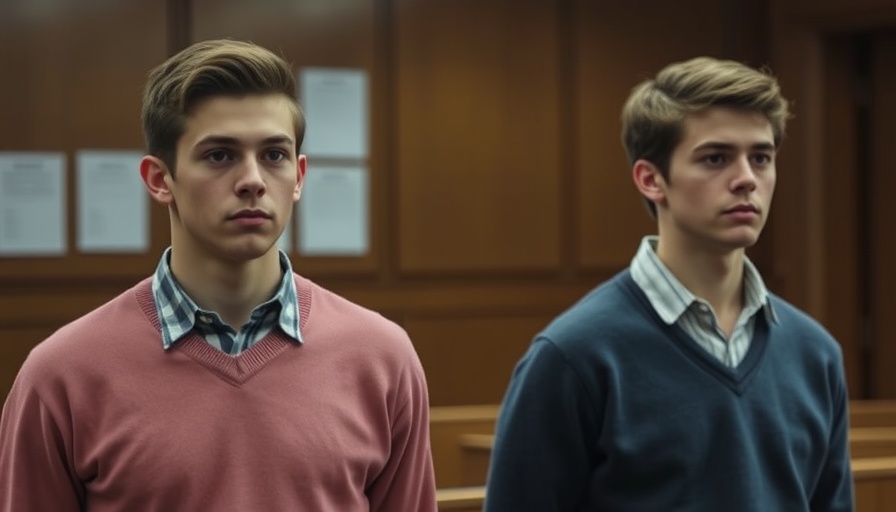
A New Chapter Unfolds for the Menendez Brothers
A Los Angeles County judge has made a significant decision regarding the resentencing of Erik and Lyle Menendez, allowing their bid for reduced sentences to proceed. This ruling comes after the court dismissed a request by current District Attorney Nathan Hochman to withdraw a motion that aimed to reevaluate the brothers’ sentences, making them potentially eligible for parole.
During the upcoming hearing scheduled for April 17, the court will delve deeper into whether the Brothers have shown complete accountability for their tragic past involving the murders of their wealthy parents in 1989, which they argue were acts of self-defense due to years of alleged abuse. The case is once again reigniting public interest and debate, as the Menendez brothers continue their campaign for freedom not only through resentencing but also by seeking clemency.
The Backstory: A Crime That Shook America
The Infamous case of the Menendez brothers divides opinions even decades later. After the deaths of Jose and Mary Louise Menendez at their Beverly Hills mansion, Erik and Lyle were ultimately convicted of first-degree murder. Their story is not just about the crime but also about the years of psychological implications and the family dynamics that led up to that fateful day.
In the public eye, the Menendez brothers became symbols of conflict between wealth, privilege, and the consequences of family abuse. Many recalled how riveting the initial trials were, where emotional testimonies aired on television captivated America, making them household names.
Public Sentiment: Sympathy or Justice?
Societal views on the Menendez case have evolved. Some see the brothers as tragic figures who were victims of relentless abuse, while others insist they are cold-blooded killers deserving of their life sentences. Hochman’s assertion that the brothers have failed to take responsibility feeds into this dichotomy, causing a fluctuating public discourse on crime, punishment, and the interpretation of justice.
The judge’s decision to allow the resentencing hearings to move forward suggests a potential shift in how the justice system approaches such high-profile cases. Discussions surrounding psychological insight and risk assessment in carrying out sentences are essential elements of this new chapter.
Future Implications: What Lies Ahead?
As proceedings continue, this case remains a stimulus for broader discussions on criminal reform and the role of psychological assessment in sentencing. Governor Gavin Newsom has indicated that a clemency hearing will also take place on June 13. The outcomes could reflect a growing trend in the U.S. toward reviewing cases that blend serious criminal behavior with underlying mental health issues.
There is a palpable sense that the Menendez brothers’ potential path to freedom could influence future cases involving similar circumstances. This raises critical questions: Is society ready to reconsider how we view justice for individuals with troubled pasts? Should the past shape the future in such dramatic ways?
The Role of Media: From Tabloids to National News
Media coverage of the Menendez brothers has dramatically influenced public opinion throughout the years. Initially sensationalized by tabloids, their story evolved into serious national news debates highlighting broader themes of abuse, crime, and redemption. How media framing impacts perceptions of guilt and innocence remains a crucial dialogue, as seen in various high-stakes cases across the country.
With the potential for resentencing, the way this story unfolds could either solidify their status as symbols of abuse victims advocating for justice or reaffirm their role as examples of failed accountability.
Call to Action: Stay Informed
The Menendez brothers’ case continues to evolve, offering a compelling lens through which to view ongoing discussions about justice and clemency in America. As we await the upcoming hearings, staying informed about the details and developments can help shape our understanding of both the legal proceedings and their broader implications within society.
 Add Element
Add Element  Add Row
Add Row 



 Add Row
Add Row  Add
Add 


Write A Comment